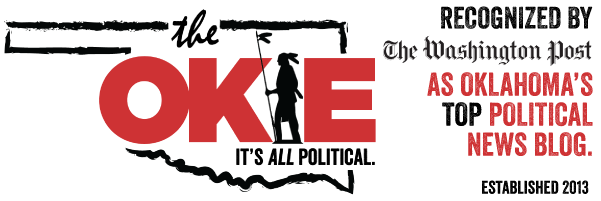OCPA Impact: Tax Increase Could Hit OK Energy Production
From: OCPA Impact
Web: www.ocpaimpact.com
Dateline: April 13, 2014
Chesapeake CEO suggests tax increase on Oklahoma oil and gas wells could affect drilling in state
In the conversation about increasing Oklahoma’s gross production tax on horizontal and deep oil and natural gas wells, lawmakers should consider the words of one the state’s leading energy job-creators.
Many factors influence an energy producer’s decision about drilling in a given area. Some factors are above-ground, others below-ground.
Oklahoma must compete to attract producers to drill here as opposed to somewhere else. We compete not just with other states, but with geological formations worldwide.
With each new well drilled comes millions of dollars in jobs and investment in the local economy, as well as tax dollars – collected through a variety of different taxes, not just the gross production tax – for schools, roads and prisons.
Those millions could be spent in Oklahoma or just as easily spent in South Texas, Western Pennsylvania, Canada, or West Africa.
A tax increase is a cost increase on a well’s balance sheet. From that balance sheet, a producer will decide whether drilling in a particular spot will be profitable compared to other locations.
In February, Oklahoma’s own SandRidge Energy began reducing some of its drilling operations in Kansas and Oklahoma because the below-ground economics didn’t work out.
Now, Doug Lawler, CEO of Chesapeake Energy, another Oklahoma-based energy producer and job-creator, has indicated a tax Eincrease on Oklahoma wells could negatively affect the above-ground economics of drilling in his company’s native state.
From the April 9 edition of The Oklahoman:
Lawler said discussions at the Oklahoma Legislature about the gross production tax for horizontal drillers could affect future investments in the state. With Chesapeake’s renewed financial discipline, Oklahoma’s oil and gas plays have to compete for internal capital, he said.
“Those investments have to continue to compete with the domestic portfolio that also has better opportunities,” Lawler said. “Oklahoma does not have the best rock. It has some very good rock, but it doesn’t have the best rock. It’s very important for the state of Oklahoma – and the continued tax revenues and the continued investments in the state – that we have competitive taxation and competitive economics to continue to draw investments to the state.”
Oklahoma lawmakers would be unwise to raise taxes on wells drilled here. There’s plenty of oil and natural gas to drill for outside of Oklahoma, and job-creators know it.
###

